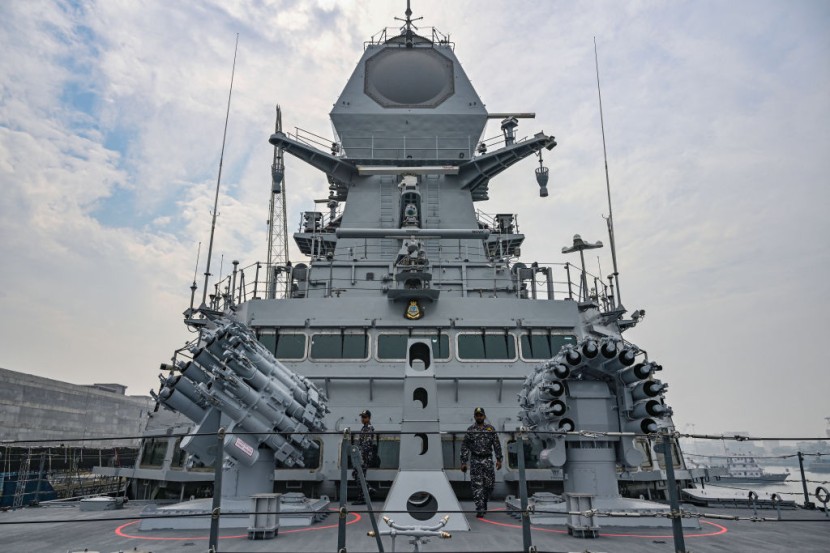The Indian government has finally decided to tout its naval power in international waters as part of its efforts to challenge China's growing influence.
For decades, the South Asian country has focused its defense policy on its land borders with its rivals, China and Pakistan. However, as India's global ambitions continue to expand, it is finally conducting efforts that include anti-piracy patrols and a widely publicized deployment close to the Red Sea.

The latter seeks to help in the protection of ships that have been targets of continued Houthi rebel attacks amid Israel's war on Gaza. In November last year, India sent three guided missile destroyers and reconnaissance aircraft after the Yemen-based terrorist group started to target vessels in solidarity with Hamas.
That particular disturbance resulted in chaos in the key trading route that is responsible for handling roughly 12% of global trade. The former head of the country's southern naval command, Anil Kumar Chawla, said that India's deployment highlighted the country as a "proactive contributor" to international maritime security, as per the Associated Press.
Chawla, who retired from his previous position in 2021, said that the decisions were not made simply out of altruism. He noted that unless you are a maritime power, you can never aspire to become a global power.
India, which is already a regional power, is starting to position itself as a "global player today, an upcoming global power." The nation is already publicizing the deployments, which signals its desire to assume a wider responsibility in maritime security to the rest of the world. It also shows its growing maritime ambitions to regional rival China.
Chawla said that the deployment is a message to China that India is capable of sending such a large force in the area. He argued that his country is probably the most capable and responsible resident naval power.
Growing Into a Global Power
The Indian navy has helped at least four ships, three of which were attacked by Houthi rebels and another that Washington blamed on Iran, which is something that Tehran denied. The Houthi rebels have targeted dozens of ships in the Red Sea as the group is seeking a ceasefire in the Gaza Strip, according to Yahoo News.
On the other hand, the United States and its allies have responded with multiple rounds of bombings of rebel positions. So far, India has not joined the American-led force that is batting the Yemen-based rebels.
The Indian guided missile destroyer INS Visakhapatnam on Jan. 26 assisted the crew of a Marshall Islands-flagged tanker. This was in order to manage a fire onboard that began after it was struck by a missile in the Gulf of Aden.
In a statement, Indian Foreign Minister Subrahmanyam Jaishankar said that the country's growing capability, interests, and reputation warranted its assistance in these times of hardships.
During a public event on Tuesday, he said that they cannot be considered a responsible country when bad things are happening close by and they say that they have nothing to do with it. There are many other countries that have a naval presence in the region, including the U.S., France, and China, said Reuters.
Related Article:
Indian Court Rules To Give Hindu Worshippers Approval To Pray at Disputed Mosque
© 2025 HNGN, All rights reserved. Do not reproduce without permission.








